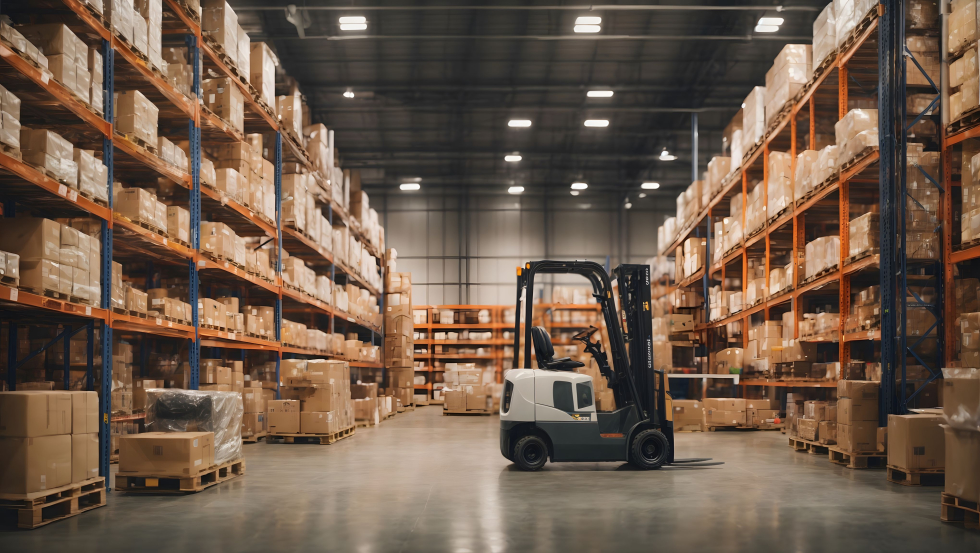Guide To European Union Import Procedures For Business Success
Unlock the potential of European markets with expert guidance on European Union import procedures. Streamline your imports and succeed in international trade

In the intricate landscape of international trade, mastering European Union import procedures is paramount for businesses eyeing success in the EU market. Navigating through the various regulations and documentation requirements can be complex, but a comprehensive understanding is the key to unlocking the vast potential of the European market. This guide provides an in-depth exploration of crucial aspects related to EU import procedures, shedding light on key documentation, regulatory frameworks, and specific product-related requirements.
EU Import Requirements and Licensing
Understanding whether a license is required for a particular product is fundamental to successful imports into the EU. The TARIC (Tarif Intégré de la Communauté) aids in determining licensing needs. The European Commission's export helpdesk offers valuable insights into import restrictions on various products. Many EU Member States, such as Germany, maintain their import lists indicating goods requiring licenses, applicable restrictions, and the issuing agency. For detailed information on member state import licenses, consulting relevant Country Commercial Guides or the Commerce Department’s Market Research Library is advised.
Essential Import Documentation
The Single Administrative Document (SAD) serves as the official model for written declarations to customs, describing goods and their global movement. It is crucial for trade outside the EU or involving non-EU goods. Goods entering the EU customs territory are subject to customs supervision, and a Summary Declaration is filed once they are presented to customs officials. The SAD, serving as the EU importer's declaration for customs duties and VAT, is valid across all EU Member States. EFTA countries like Norway, Iceland, Switzerland, and Liechtenstein also utilize the SAD.
The Union Customs Code (UCC), effective in May 2016, replaced the Community Customs Code. Economic Operator Registration and Identification (EORI) numbers are mandatory for companies outside the EU engaging in customs declarations. Obtaining an EORI number is a prerequisite for customs clearance, and it can subsequently be used for exports to any of the 28 EU Member States. The U.S. and EU maintain a Customs Mutual Assistance Agreement (CMAA), facilitating cooperation on customs matters since 1997.
Authorized Economic Operator (AEO) and Customs Cooperation
Since July 1, 2009, non-EU companies need an EORI number for customs clearances. Obtaining AEO status can expedite european union import procedures, offering benefits like simplified processes, reduced inspection costs, and enhanced recognition. The U.S. and the EU recognize each other’s security-certified operators, ensuring favorable treatment for certified trusted traders.
Environmental Regulations and New Initiatives
Ensuring product safety for the environment and human health is a top EU priority. The Circular Economy & Plastics Strategy focuses on waste elimination during product development. The EU Battery Directive, Waste Electrical and Electronic Equipment (WEEE) Directive, and Restriction of Hazardous Substances (RoHS) Directive aim to regulate products concerning their environmental impact. Compliance with these directives is crucial for U.S. exporters, and understanding the specific requirements is essential.
Chemical Regulations: REACH
Registration, Evaluation, Authorization, and Restriction of Chemicals (REACH) applies to all chemicals imported into the EU exceeding one metric ton. U.S. companies need to comply with the registration obligation by May 31, 2018. The European Chemicals Agency (ECHA) oversees these registrations. Additionally, U.S. exporters should be aware of the REACH Candidate List and the Authorization List, ensuring compliance with communication requirements for certain substances.

Additional Product-Specific Regulations
- Batteries: The EU Battery Directive restricts the sale of batteries containing mercury or cadmium. Producers are responsible for financing the collection, treatment, and recycling of used batteries.
- WEEE Directive: While not requiring specific customs paperwork, compliance with WEEE rules may entail financial obligations. U.S. exporters must register relevant products and include recycling symbols on products.
- RoHS Directive: Imposing restrictions on certain chemicals in electrical and electronic equipment, the RoHS Directive requires self-certification by manufacturers, affixing a “CE” mark.
- Cosmetics Regulations: U.S. exporters must navigate EU legislation harmonizing cosmetic product regulations, including the need for notification to the European Commission and the role of a "Responsible Person."
Agricultural Documentation: Phytosanitary and Sanitary Certificates
- Phytosanitary Certificates: Required for most fresh fruits, vegetables, and plant materials.
- Sanitary Certificates (Fisheries): The EU recognizes the U.S. seafood inspection system as equivalent to its own, requiring a specific public health certificate for seafood shipments. However, there is currently a ban on U.S. bivalve mollusks imported into EU territory due to a lack of equivalency in the U.S. shellfish sanitation system.
- Catch Certificates: Besides sanitary certificates, all third countries exporting fishery products to the EU must provide a catch certificate confirming the legal catch of the products.
With these specific regulations in mind, U.S. exporters can ensure compliance and facilitate smooth trade in the EU market.
Facilitating Trade on the Export Portal
Navigating the import procedures of the European Union demands meticulous attention to detail and compliance with various regulations and documentation requirements. However, with the right understanding and preparation, businesses can unlock vast opportunities for trade within the EU market.
The Export Portal serves as a valuable resource and platform for businesses looking to engage in international trade, offering comprehensive support and guidance throughout the import process. By leveraging the tools and resources available on the Export Portal, businesses can streamline their import operations, access vital information, and connect with trusted partners across borders.
As the global economy continues to evolve, the European Union remains a pivotal hub for trade and commerce. By embracing the European Union import procedures outlined above and utilizing the services provided by the Export Portal, businesses can seize new opportunities, expand their reach, and thrive in the dynamic landscape of international trade.
Join Export Portal today and embark on a journey of growth, innovation, and success in the European Union market!






Comments 0